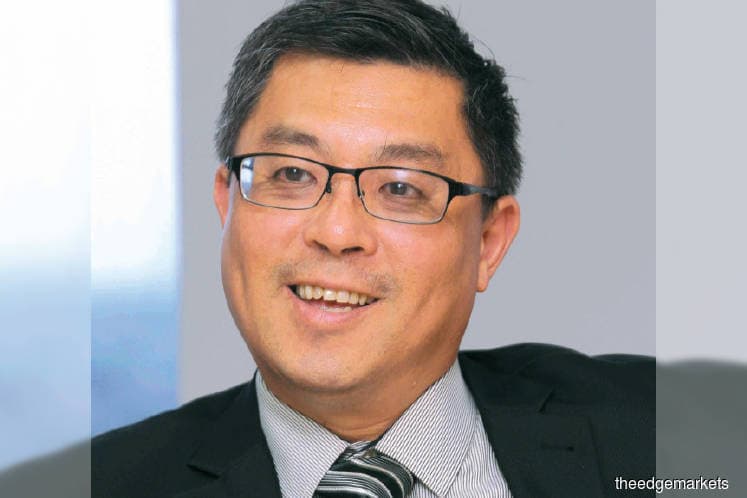
This article first appeared in The Edge Malaysia Weekly on June 25, 2018 - July 1, 2018
THERE is a Chinese proverb that says, “If your plan is for one year, plant rice. If your plan is for 10 years, plant trees. If your plan is for 100 years, educate children.”
Kingsley EduGroup Ltd may not be the biggest private education service provider in Malaysia but it took the lead to become the country’s first education company to be listed on the Hong Kong Exchanges and Clearing Ltd (HKEX) last month.
The market potential in the mid-range segment is huge, says executive director Dr Chua Ping Yong, especially after the government liberalised international schools about a decade ago. “About 50 to 60 years ago, only expatriates and those who worked in embassies could send their children there. In 2009, the rules were relaxed and international schools were allowed to enrol Malaysians,” he tells The Edge in an interview.
But even then, there was a 40% enrolment cap for local students until the quota was removed in 2012.
The timing is just right for Kingsley International School (KIS), which recorded its first student intake in September 2011.
A report by Frost & Sullivan shows that based on average annual tuition fees, international schools in Malaysia can be divided into three segments — high-end (RM40,000 and above), mid-range (RM20,000 to RM40,000) and low-end (below RM20,000). The average tuition fee at KIS falls in the mid-range.
“The mid-range segment is growing very quickly. Today, there are close to 1,000 students in our school, which offers courses ranging from nursery to A-levels, based on the curriculum developed by the University of Cambridge International Examinations and National Curriculum for England. This is our main income stream, our core business,” says Chua.
According to Frost & Sullivan, in 2016, in terms of student enrolment, KIS ranked 29th out of 116 international schools in Malaysia and 13th out of 37 in Selangor. The school recorded a steady increase in student enrolment over the past five years, growing at a compound annual growth rate of 19.4%.
Kingsley also provides tertiary education programmes through Kingsley tertiary institutions, which comprise Kingsley Skills College, Kingsley Professional Centre and Kingsley College.
Last month, Kingsley made its debut on the Growth Enterprise Market of HKEX after raising about HK$53 million in net proceeds. Its offer of shares at 40 HK cents apiece was oversubscribed by over 35 times.
Kingsley’s market capitalisation stood at HK$360 million at last Monday’s close of 45 HK cents.
Tan Sri Barry Goh Ming Choon founded Kingsley and is its chairman and executive director with a 62% stake. A farmer’s son from a village in Sitiawan, Perak, he is better known as the co-founder of property firm MCT Bhd.
Goh also owns 48% of Hong Kong-listed BGMC International Ltd, a home-grown construction firm named after himself. Last August, it became the first Malaysian builder to list on the Main Board of HKEX.
Tapping on the expertise of Goh in property development, Kingsley aims to venture into new markets by setting up schools in other parts of Asia, including China, Hong Kong, India, Vietnam and Cambodia.
“Ideally, it would be great if we can set up universities in these countries. But first, we need to find local partners. We also have to look at individual opportunities as well as the land ownership. Does the partner own the land and we just build it?” says Chua.
As a Hong Kong-listed firm, it is easier for other education groups to consider a collaboration with Kingsley, he says. “Our potential partners would want to look at our financial capability, the number of students and how trustworthy we are. If you are listed in Hong Kong, all that would have already been vetted by HKEX.”
The listing also gives Kingsley a firm footing to expand into the China market. “China is another huge option for us. But to seek collaboration in China, it will take some time and a little bit of work. Hong Kong is also a possibility. Obviously, the demand for international schools there is very high. That’s where we are heading,” says Chua.
For the financial year ended June 30, 2017 (FY2017), Kingsley saw its revenue increase 58.3% year on year to RM29.8 million. Group profit jumped more than threefold to RM11.3 million. KIS contributed close to 90% to Kingsley’s total revenue in FY2017 while Kingsley tertiary institutions made up the remaining 10%.
Chua says Kingsley hopes to maintain its strong growth momentum and to move to the Main Board of HKEX within two years.
“We want to get more students. Eventually, we are going to have [sufficient] classrooms for 3,000 students. Right now, we only have 1,000 students. So, there is literally more room for growth,” he says.
Kingsley’s strategy is to monitor the source countries for foreign students so it can move into those markets. “Currently, Koreans make up the highest number of foreign students. But to set up a school in South Korea is expensive. We need to understand the culture, the situation and the education system of the countries concerned,” Chua says.
Save by subscribing to us for your print and/or digital copy.
P/S: The Edge is also available on Apple's AppStore and Androids' Google Play.